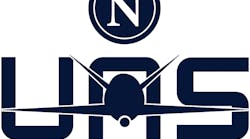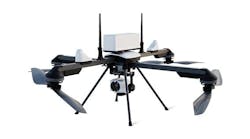The following information was released by the Center for Democracy & Technology:
by Harley Geiger
February 9, 2012
Congress is demanding drones in the air over the United States - without considering the civil liberties issues. Within the span of three days last week, the House and then the Senate passed a law - H.R. 658 - requiring the Federal Aviation Administration (FAA) to speed up, within 90 days, its current licensing process for government use of drones domestically and to open the national airspace to drone aircraft for commercial and private use by October 2015. While the law requires the FAA to develop guidance on drone safety, the law says absolutely nothing about the privacy or transparency implications of filling the sky with flying robots.
As CDT and others have pointed out, drones are powerful surveillance devices capable of being outfitted with facial recognition cameras, license plate scanners, thermal imaging cameras, open WiFi sniffers, and other sensors. Drones' unique ability to hover hundreds or thousands of feet in the air - undetected, for many hours - enables constant, pervasive monitoring over a wide area. Without clear privacy rules, public and private use of drones can usher in an era of unparalleled physical surveillance. Without transparency requirements, citizens will not even have the basic right to know who owns the drone watching them from above. Congress, the FAA, industry bodies, and the American people all should play a role in ensuring that drones are used responsibly.
Congress
Congress missed a major opportunity to build civil liberties protections into H.R. 658. Instead, Congress fast-tracked the bill, ordering the FAA to unleash drones without even requesting a study or holding a hearing on the civil liberties implications of domestic drone deployment. Perhaps indignant hearings are inevitable, however, once hours of embarrassing drone footage hits YouTube. Ideally, privacy rules for civilian and government use of drones would be an explicit part of the baseline privacy legislation, though Congress should consider giving the FAA authority to build privacy into the drone licensure process.
The FAA
As CDT argued in a previous blog post, the FAA should build transparency standards into its drone certification process. First, applicants for a license to use a drone should be required to submit a statement disclosing the surveillance capabilities of the drone and the intended use of information the drone might collect. Second, the FAA should make the drone license and accompanying privacy statement publicly available online. There should not be an exception for law enforcement, although there may be a national security exception. Transparency requirements alone will certainly not provide adequate civil liberties protections to the American people, but they would generally prevent the secret use of drones.
The transparency requirements CDT proposes are well within the FAA's mandate to ensure the airways are used safely. There are many realistic scenarios in which knowledge of drone ownership can affect public safety, such as if an individual seeks to learn whether her abusive ex-husband possesses a drone license, as well as numerous legal precedents alleging a risk of harm to the public in divulging travels patterns, political views, or sensitive affiliations - all of which drone surveillance can reveal. The FAA already makes many aircraft licenses searchable online, enabling the public to search for license-holders by name, craft tail number, or craft make and model - it would be illogical not to establish a similar process for drone licenses. Unfortunately, the FAA has steadfastly refused to identify current drone license-holders.
The Drone Industry
The drone industry has a big image problem. A glance through the comments section of any online news article on drones reveals an outpouring of strong opinions that alternate between alarm, fatalism, and - very often - fantasies of shooting drones out of the sky as a means to protect privacy. To counter this widespread negative sentiment, the drone industry has announced a major public relations effort to make Americans more comfortable with drones. (I sincerely hope this PR push will include drones dropping ice cream sandwiches and confetti on you on your birthday.) To be sure, drones can do many positive things and can spark broad technological innovation. However, the industry's goodwill gesture will not mask continued use of unmanned aircraft to watch over political rallies, monitor traffic, or levy taxes. The industry needs to do something a lot more substantial than PR.
The drone industry has a strong interest in supporting - at minimum - transparency requirements for drone licenses. Secret use of drones magnifies the perception of privacy invasion, sensationalizes the industry, and provides cover for those who would use drones for unethical or harmful purposes. The transparency requirements CDT proposes would subject the industry to almost no extra burden while providing the public with an awareness that could foster greater comfort with the technology. The drone industry should think seriously about a set of best practices for drone operators that include not identifying individuals over space and time without permission. CDT made similar arguments with regard to facial recognition.
The Public
The FAA is widely expected to propose rules for domestic drones this coming spring, at which time the FAA will solicit public comments. All Americans can submit their concerns to the FAA and demand, at a minimum, that all drone licenses be made publicly available. There is a lot at stake here. The fact that Congress, the FAA, and the drone industry appear to be ignoring the issue portends a big mess on the horizon. But by the time they get around to establishing the needed civil liberties protections, the horizon may already be filled with softly whirring black dots.
For tech policy updates, follow us on Twitter at @CenDemTech.
Copyright 2012 States News Service



